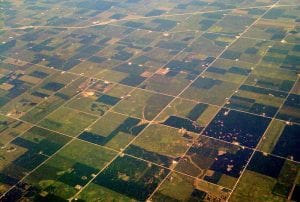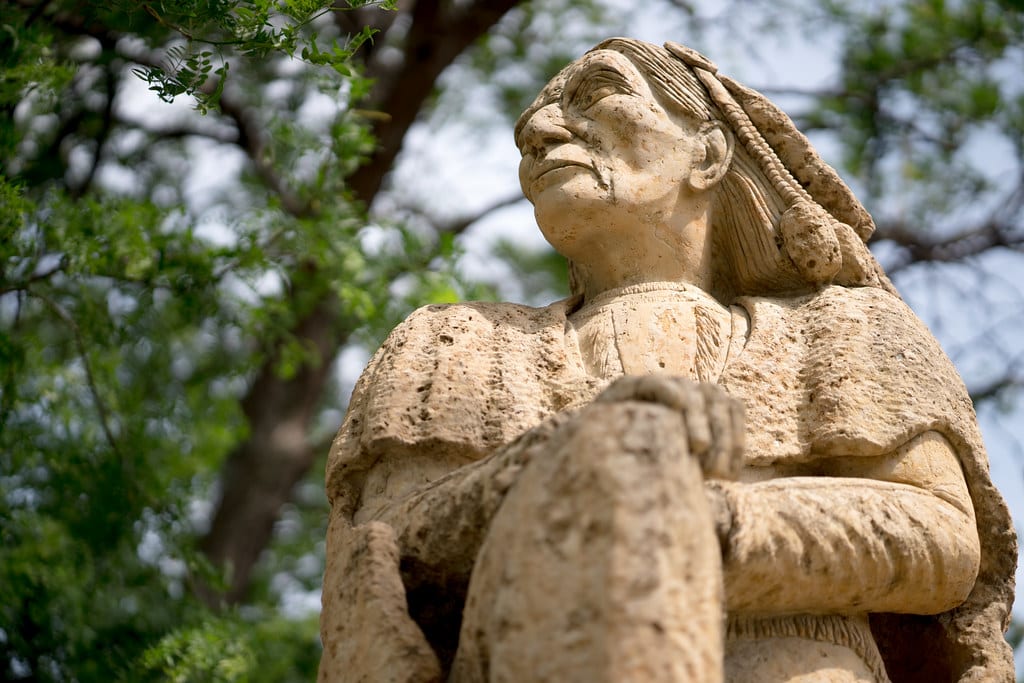As the world changes around us, land use issues will become more contentious, as more people with more needs are pressed into less and less space.
It’s clear that land reform is necessary to move towards the decentralized, local food system of our future, a theme explored in a recent post. However, food production isn’t the only factor affecting land use. There are also issues of property rights, development, inheritance, zoning, debt, and optimal use to contend with, which sound boring yet really matter. There’s only so much land, after all, and a growing number of interests chasing after it. If you’re someone who eats food, needs a place to live, has to make a living, values ancestral or other connections to the land, or who simply wants a place to put your stuff, these matters affect you.
Any discussion of changing land use policies or creating systems that benefit society as a whole will run smack into the obstacle of property rights. It gets even trickier when property rights are defined on a moral, as well as legal, basis. Consider the status of Indigenous communities whose land was yanked out from under them from the colonial era onward. Even looking past the (questionable) legal title, deciding who has the moral right to the land means deciding whose moral perspective matters more. Is the world made better when Native people can pursue traditional lifeways on the land of their ancestors, or is it more important to extract the resources from that land and ship them to market as fast as possible? It depends who you ask, and what definition of “better” you’re using. Questions like these are what underlie treaty votes and Indigenous policy around the world.
Even buying land outright doesn’t mean that you or your descendants will get to keep it. One generation after slavery, Mitchell Reels purchased 65 marshy acres of North Carolina riverfront property, where he farmed, caught seafood, opened the only beach for miles around that welcomed black visitors, and raised his family. When he died in 1970, he left them with a final wish: “Whatever you do, don’t let the white man have the land.”
Reels didn’t trust the court system to properly enforce a will, so he didn’t leave one, relying on the practice of “heirs’ property” to keep his farm in the family. All that did, however, was enable his great-grandsons to be summarily dispossessed when wealthier interests saw the potential of redeveloping the Reels’ land. It’s not just a question of land use, and whether the Reels family ought to retain the right to fish and live on their ancestral property versus the “value added” proposition of a resort business. It’s the continued story of centuries of theft.
Then there are places like South View Heights No. 2, once a subdivision on the outskirts of Mankato, Minnesota. For fifty years, the neighborhood resisted being absorbed into Mankato proper, preferring their low tax rate to the easy availability of city services. That lasted right up until the community’s water tower rusted away, over 80% of their septic systems broke, and the pavement reached the end of its useful life. In 2016, South View Heights No. 2 begged for Mankato to annex them, and the bailout came in the form of new infrastructure and new taxes that are unlikely to ever pay for the upgrades and city services that Mankato is now obligated to provide. Land use like this is not sustainable. But then again, neither is a lot of industrial culture.

All around us, the world is changing. In our constant rush to get as much as possible while paying as close to nothing as is practical, we’re going to end up with more neighborhoods like South View Heights No. 2. Marginalized groups like the Reels lose ever more of their land to development and Indigenous groups are pushed aside for resource extraction even as we need to encourage gentler, more sustainable land use and decentralization that puts more land back in the hands of individuals and families. Even the recent “climate change solution” of planting billions of trees around the world to suck our industrial carbon out of the air runs into problems of property rights and the reality that most of that land is already being used as someone’s home, someone’s farm. We only have so much land. Let’s make sure that those 52 million square miles, all we’ll ever have, are maintained in a way that allows them to maintain us in perpetuity.
Related: On the Necessity of Land Reform


Join the conversation!